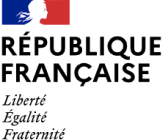Evolution of the French system of the quality assurance in VET
The national framework for the VET quality assurance in France is the result of a long regulatory process.
The Law of 4 July 1990 introduced for the first time the concept of the accreditation of training programmes to ensure that they maintain quality and that they meet expressed needs. In 1995 the law introduced the authorisations for VET providers, issued regarding to their financial capabilities, their human and material resources and the quality of the provided training. In the 2000s, since it became a common practice to purchase VET programs by means of a public tender, the switch was made to professionalise not only the training offer but also the act of purchase itself.
The national interprofessional agreement of 13 December 2013, between social partners, was very ambitious, placing the industrial sectors at the heart of the quality system « to conduct a policy of improving the quality of training for the benefit of enterprises and employees », is says.
The Law of 5 March 2014 gave to the financing bodies (OPCA they are called) the responsibility for ensuring the VET provider was able to deliver a good quality training. This system also introduced for the first time the concept of certification or a quality label for the VET providers.
However, all these quality assurance measures did not lead to a full harmonisation of practices, especially they did not make them clear for private companies and the general public.
Therefore, it seemed necessary to create a unique national quality reference framework for the VET providers. This new framework, introduced by the last law of the 2018, extended the quality requirement also to the apprenticeship, for instance, and made the new certification, called Qualiopi, mandatory for the VET programs supported by the public funding. Thus the Law of 5 September 2018 took a step further in terms of quality assurance and required all VET providers based on public funds to be certified in advance in accordance with a unique national reference framework. It became thus their responsibility. The direct consequence is the greater transparency of the “quality” system for the general public, who had become, by means of the same 2018 law, the main player in developing their competencies with the introduction of the personal (or individual) training account (CPF). The basic idea was that everyone could obtain all the information they required on the methods, aims, targeted results and success rates of each training.
Here the COFRAC (the French accreditation committee) takes an important place by choosing the certifying bodies (around 30 now) which are delivering right now already the new quality certifications “Qualiopi” to the VET providers; these certifications will become mandatory starting from the 1st January 2022.
France compétences, in certain cases, is also able to choose some certifying bodies in addition to COFRAC.
Qualiopi certification applies to the VET provider, not the training programmes.





